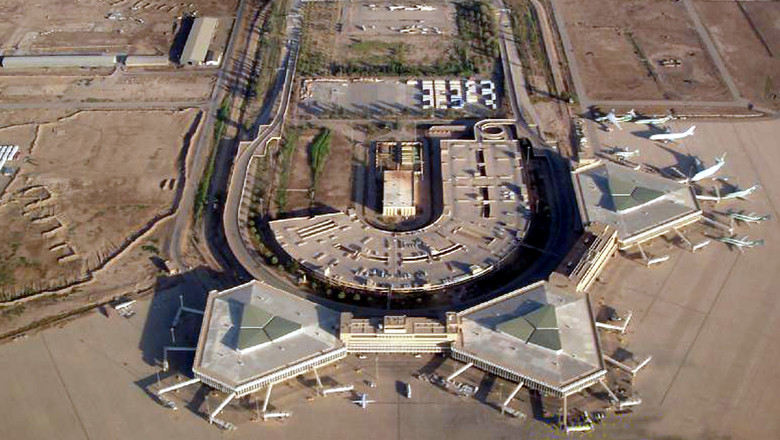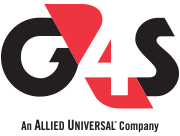
Keeping Baghdad International
Airport in action

G4S has retained the contract to manage security at Baghdad International Airport (BIAP), following a competitive tender process. This means G4S has now held the contract continuously for seven years since first winning it in 2010. According to Iraqi procurement rules, all public sector contracts must be retendered every year.
Under the renewed contract, G4S will continue to provide round-the-clock security for the airport, its staff and passengers. This ranges from physical security at the entry checkpoint, to the screening of passengers, staff, baggage and cargo using canine teams and x-ray equipment as they pass through the airport, as well as air-side security for airlines and their aircraft.
A growing workforce
G4S also runs two secure compounds at the airport that house the company’s offices, and provide accommodation and leisure facilities for local and international staff. The compounds have everything the employees might need, including 24-hour manned security, full catering, fast internet connections, gyms, conference and training facilities, and an international-standard medical clinic.
The company employs around a dozen different nationalities at the airport, but the vast majority are Iraqi personnel working shifts of four days on, four days off.
“It just wouldn't make sense for them to travel in from Baghdad or the surrounding areas every day,” says Raymond Dalglish, G4S Project Manager at BIAP. “So we provide overnight accommodation along with food, TV rooms, laundry services, the whole gamut.”
The highly trained staff include a quick reaction force and explosive detection teams, assisted by a roster of 47 dogs. The number of staff has had to expand over the years to deal with the increasing scope of the contract and the growing levels of traffic coming through the airport.
“In 2010, when G4S took over the contract, there was one terminal in operation and we had just over 600 staff working for us,” says Dalglish. “We now have in the region of 900 staff working for us. We operate two terminals, and during the Hajj period we operate a third terminal for the pilgrims. In 2010, the passenger flow was 600,000 a year and by last year that had risen to 1.8 million. This year already we're already running at 1.1 million, so it looks as if we're going to beat the 2016 figure.”
Huge responsibility
We work closely with the Iraq Civil Aviation Authority (ICAA), which is in charge of all airports in Iraq. The relationship has evolved and deepened over the years, with G4S taking on additional work in line with the airport’s expansion.
Among other things, we have taken on responsibility for the maintenance and repair of the machinery used within BIAP, including the Rapiscan x-ray machines.
With the new Karbala terminal due to open in the future, our responsibilities will increase even further. “Baghdad is a challenge. It's constantly evolving, constantly changing and we've got to move with the wishes of the client,” says Dalglish.
There is of course also a constant eye to be kept on how best to maintain and improve security. A major redevelopment of the entry checkpoint was completed in 2013, which is just one of seven layers of security that passengers and staff have to go through, from the point at which they enter the airport until they get on the aircraft.
“There are a lot of layers to security within the airport,” says Markus Frehse, Chief Operating Officer for G4S Secure Solutions (Iraq). “It means that people do generally feel safe coming here and transiting through. It's an airport in a city with high degree of security risk, which we have been successful in mitigating.”
However, the G4S team on the ground remains vigilant for any threats that might emerge, working closely with all the relevant Iraqi security agencies to ensure that safety concerns are at the top of the agenda. “We have security meetings with all the agencies in Iraq, including the army, the Iraqi National Intelligence Service and the ICAA, as well as the airlines. We meet with all of them on a regular basis to discuss any issues that may come up,” adds Dalglish.
Attracting new business
The growing traffic figures at the airport are testament to work that we have been doing. In 2010, there were 11 airlines flying in and out of Baghdad International, a figure that rose to 28 last year, including most of the major Middle Eastern carriers. The number of flights has increased from 7,000 a year to 16,000 a year over the same period. Cargo volumes are growing even faster than passenger numbers.
“We've got great relationships with the airlines,” says Dalglish. “When their security teams come to do a tour, we go around with them and the ICAA, answering any questions or concerns they might have with regards to how we perform our tasks and the procedures and processes we use.
“The statistics show how the ICAA, working with G4S, has managed to attract many more flights. It used to be that BIAP was only used for contractors passing through and a few pilgrims. Now people are using the airport to go on holiday and the ICAA is broadening its horizons worldwide.”
